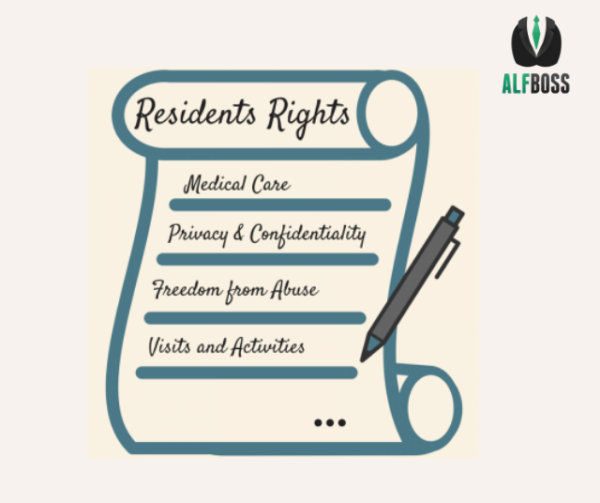
Respecting resident rights
The 1987 Nursing Home Reform Law was instrumental in transforming the mindset of long-term care providers and creating the modern senior living realm as we know it today. The law places a strong emphasis on individual dignity and independence guaranteeing them a quality of life that is similar to living in a community at large. Many states, such as Arizona, have adapted their own set of regulations regarding resident rights in the assisted living facility as seen below:
R9-10-810. Resident Rights
- A manager shall ensure that, at the time of acceptance, a resident or the resident’s representative receives a written copy of the requirements in subsection (B) and the resident rights in subsection (C).
- A manager shall ensure that:
- A resident is treated with dignity, respect, and consideration;
- A resident is not subjected to:
- Abuse;
- Neglect;
- Exploitation;
- Coercion;
- Manipulation;
- Sexual abuse;
- Sexual assault;
- Seclusion;
- Restraint;
- Retaliation for submitting a complaint to the Department or another entity; or
- Misappropriation of personal and private property by the assisted living facility’s manager, caregivers, assistant caregivers, employees, or volunteers; and
- A resident or the resident’s representative:
- Is informed of the following:
- The policy on health care directives, and
- The resident complaint process;
- Consents to photographs of the resident before the resident is photographed, except that a resident may be photographed when accepted as a resident by an assisted living facility for identification and administrative purposes;
- Except as otherwise permitted by law, provides written consent before the release of information in the resident’s:
- Medical record, or
- Financial records;
- May:
- Request or consent to relocation within the assisted living facility; and
- Except when relocation is necessary based on a change in the resident’s condition as documented in the resident’s service plan, refuse relocation within the assisted living facility;
- Has access to the resident’s records during normal business hours or at a time agreed upon by the resident or resident’s representative and the manager; and
- Is informed of:
- The rates and charges for services before the services are initiated;
- A change in rates or charges at least 30 calendar days before the change is implemented, unless the change in rates or charges results from a change in services; and iii. A change in services at least 30 calendar days before the change is implemented, unless the resident’s service plan changes.
- A resident has the following rights:
- Not to be discriminated against based on race, national origin, religion, gender, sexual orientation, age, disability, marital status, or diagnosis;
- To receive assisted living services that support and respect the resident’s individuality, choices, strengths, and abilities;
- To receive privacy in:
- Care for personal needs;
- Correspondence, communications, and visitation; and
- Financial and personal affairs;
- To maintain, use, and display personal items unless the personal items constitute a hazard;
- To choose to participate or refuse to participate in social, recreational, rehabilitative, religious, political, or community activities;
- To review, upon written request, the resident’s own medical record;
- To receive a referral to another health care institution if the assisted living facility is not authorized or not able to provide physical health services or behavioral health services needed by the patient;
- To choose to access services from a health care provider, health care institution, or pharmacy other than the assisted living facility where the resident is residing and receiving services or a health care provider, health care institution, or pharmacy recommended by the assisted living facility;
- To participate or have the resident’s representative participate in the development of, or decisions concerning the resident’s service plan; and
- To receive assistance from a family member, the resident’s representative, or another individual in understanding, protecting, or exercising the resident’s rights.
Pro Tip:
- Develop a committee of residents, such as a resident council, to assist with the upholding of resident’s rights. Use this council to get a pulse of the community and stay in touch with what your residents are going through.
- Work with the BRFL and the local ombudsman closely to promote the standards of resident rights within your community.